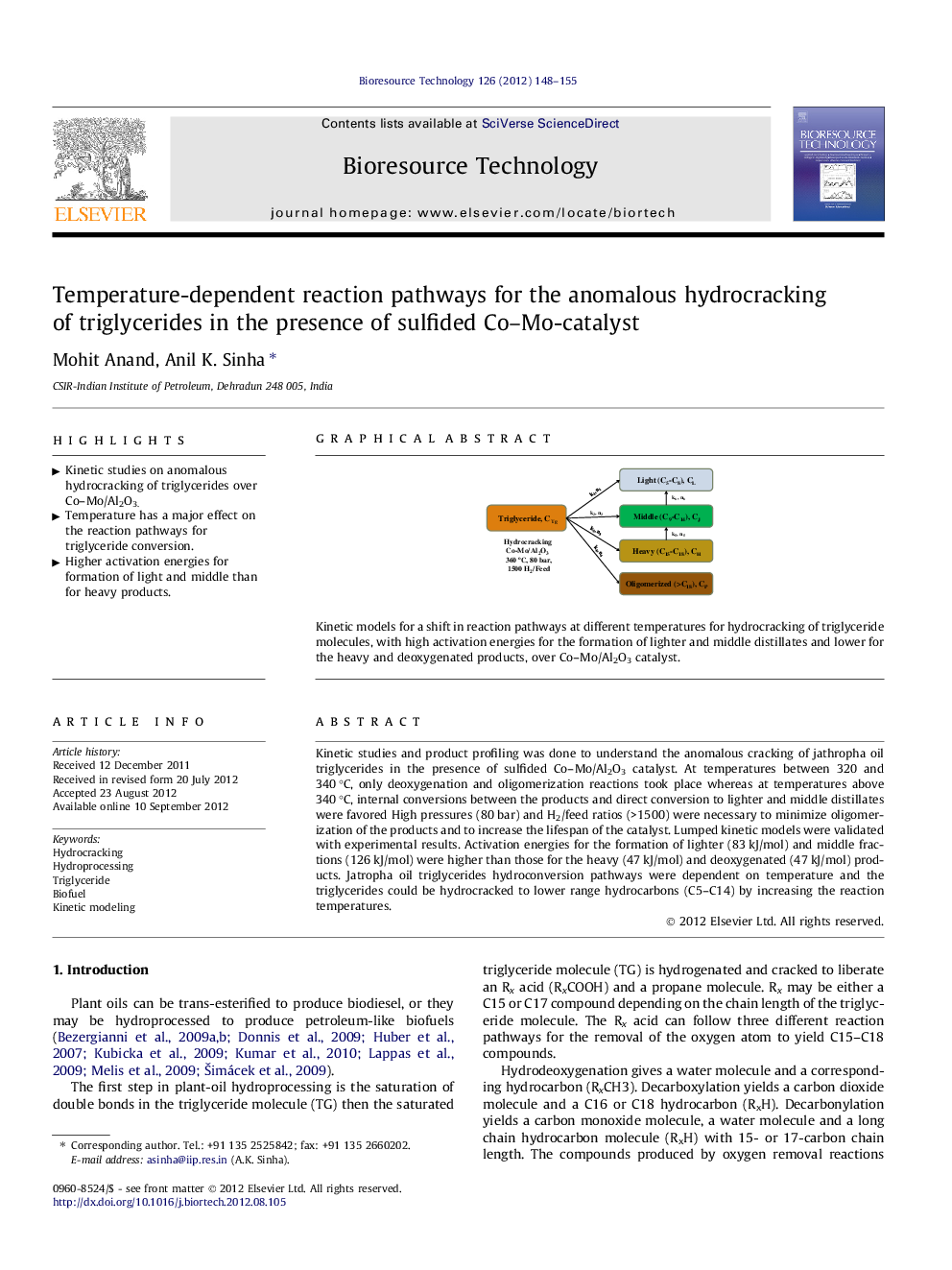| Article ID | Journal | Published Year | Pages | File Type |
|---|---|---|---|---|
| 681283 | Bioresource Technology | 2012 | 8 Pages |
Kinetic studies and product profiling was done to understand the anomalous cracking of jathropha oil triglycerides in the presence of sulfided Co–Mo/Al2O3 catalyst. At temperatures between 320 and 340 °C, only deoxygenation and oligomerization reactions took place whereas at temperatures above 340 °C, internal conversions between the products and direct conversion to lighter and middle distillates were favored High pressures (80 bar) and H2/feed ratios (>1500) were necessary to minimize oligomerization of the products and to increase the lifespan of the catalyst. Lumped kinetic models were validated with experimental results. Activation energies for the formation of lighter (83 kJ/mol) and middle fractions (126 kJ/mol) were higher than those for the heavy (47 kJ/mol) and deoxygenated (47 kJ/mol) products. Jatropha oil triglycerides hydroconversion pathways were dependent on temperature and the triglycerides could be hydrocracked to lower range hydrocarbons (C5–C14) by increasing the reaction temperatures.
Graphical abstractKinetic models for a shift in reaction pathways at different temperatures for hydrocracking of triglyceride molecules, with high activation energies for the formation of lighter and middle distillates and lower for the heavy and deoxygenated products, over Co–Mo/Al2O3 catalyst.Figure optionsDownload full-size imageDownload as PowerPoint slideHighlights► Kinetic studies on anomalous hydrocracking of triglycerides over Co–Mo/Al2O3. ► Temperature has a major effect on the reaction pathways for triglyceride conversion. ► Higher activation energies for formation of light and middle than for heavy products.
